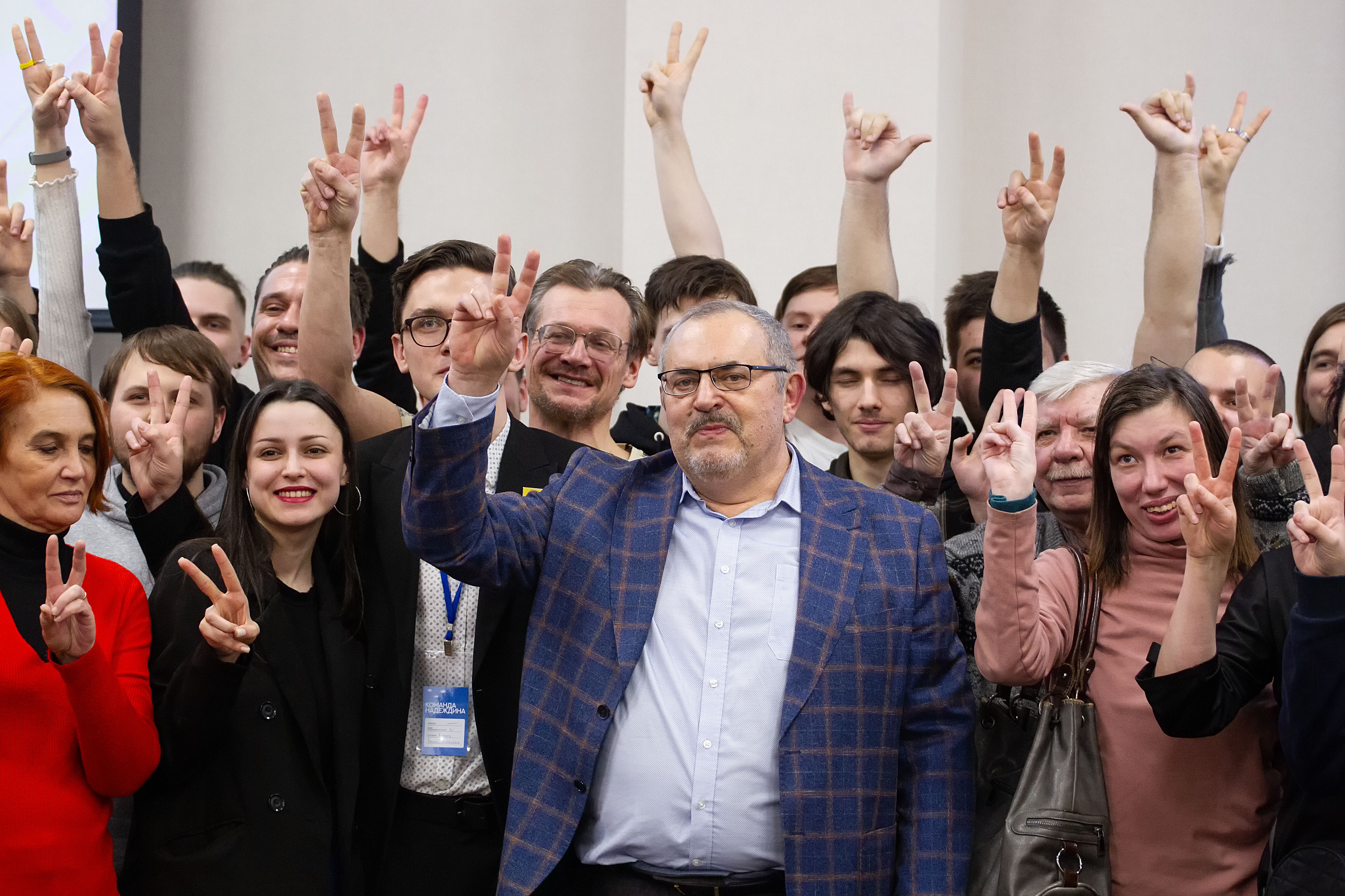Boris Nadezhdin: Russia's next (but not necessarily best) shot at ousting Vladimir Putin
A little-known lawmaker with an anti-war, pro-civil rights agenda is making waves in Russia's upcoming national election


A free daily email with the biggest news stories of the day – and the best features from TheWeek.com
You are now subscribed
Your newsletter sign-up was successful
Boris Nadezhdin is hardly a household name outside of his native Russia, but to hear the former lawmaker tell it, his dark horse bid to unseat longtime President Vladimir Putin in next month's elections has a secret weapon in his corner: Divinity. "You can call it God or fate, but there's a tangible force driving my campaign," Nadezhdin told Politico this week, citing a "number of miracles" and "astonishing things" that have bolstered his quixotic effort to deny Putin another six-year term in office when Russians go to the polls in March.
Whether theologically ordained or not, Nadezhdin is undeniably correct that his campaign has succeeded in shaking up an electoral cycle largely seen as a pro-forma precursor to another Putin presidency. On Wednesday, the onetime member of Russia's Duma and critic of Moscow's ongoing war against Ukraine submitted more than 180,000 signatures of support to the country's Central Election Commission — well above the 100,000 threshold required to qualify as a candidate for president. Calling the signatures his "pride" and the product of "many days work" from those who stood "in the cold," Nadezhdin predicted on X that it would be hard for the commission and the Putin regime to say "I didn't even notice the elephant" that is his campaign.
Вот моя гордость, многодневный труд тысяч людей без сна. Очереди, которые вы простояли на морозе — в коробках. ЦИК и действующей власти будет очень сложно сказать: «Слона-то я и не приметил!» pic.twitter.com/8bT8V5O7IXJanuary 31, 2024
Nadezhdin's surprisingly strong showing of public support has been fueled in large part by his outspoken pledge to "stop the conflict with Ukraine, and then to restore normal relations between Russia and the Western community." But in a totalitarian state like Putin's Russia, can Nadezhdin really make an electoral difference?
The Week
Escape your echo chamber. Get the facts behind the news, plus analysis from multiple perspectives.

Sign up for The Week's Free Newsletters
From our morning news briefing to a weekly Good News Newsletter, get the best of The Week delivered directly to your inbox.
From our morning news briefing to a weekly Good News Newsletter, get the best of The Week delivered directly to your inbox.
A 'catalyst for protest'
In spite of his groundswell of public support, "Nobody expects Nadezhdin, 60, to win," in a country where Putin's victory is "widely seen as a foregone conclusion," Reuters reported. Still, he has "surprised some analysts" with the tone and tenor of his ongoing criticism of the war with Ukraine, and become a "problem" for Putin, international affairs professor Nina Khrushcheva told the outlet.
While Nadezhdin was "long seen as harmless by authorities" in Russia, his campaign's ability to attract significant support and large crowds has become a "catalyst for protest" even among voters who only know his candidacy by the broadest strokes, according to Le Monde. The energy around Nadezhdin "speaks of widespread dissatisfaction with the Kremlin and its war," Politico agreed, predicting that any forthcoming effort by the Putin camp to either allow or bar his chief rival from continuing to campaign will "offer a glimpse of its own confidence levels."
Nadezhdin's campaign offers "genuine political risk for the Kremlin," PBS News reported, pointing out that Putin's widely expected victory must come with an aura of "legitimacy" to be accepted as the result of a "genuine contest." Nadezhdin "provides a shadow of hope" for Putin critics whom the Kremlin is counting on staying home next month, Carnegie Russia Eurasia Center political scientist Ekaterina Schulmann explained. Accordingly, in the "scorched field that is modern Russian politics," many Russian dissidents see Nadezhdin as the "best bet" to demonstrate that Putin "does not enjoy unanimous support," The Washington Post reported.
'Convenient for the Kremlin'
Whether actively supported by Putin's regime or merely tolerated for offering a veneer of legitimacy, Nadezhdin's campaign is "convenient for the Kremlin" Russian political analyst Dmitry Oreshkin told Germany's Deutsche Welle, adding that he would cease being an "acceptable" candidate if he were to garner more than five percent of the vote — an "ideological victory, though not an electoral one."
A free daily email with the biggest news stories of the day – and the best features from TheWeek.com
With many analysts predicting Nadezhdin would "run a tame campaign in close coordination" with the Kremlin, it's "very likely there were some preliminary negotiations" between his and Putin's camps at the onset of his candidacy, according to the Carnegie Endowment for International Peace's Andrey Pertsev. Now, however, the "nature of his public statements " suggests there's "no way he is currently acting as a spoiler candidate, or being curated by Kremlin managers."
Still, the fact that he has been "a regular guest on state TV" and nevertheless allowed to continue his campaign "in such a tightly controlled political system without the authorities' blessing" has suggested to critics that Nadezhdin is, ultimately, being tolerated by Kremlin authorities, Reuters reported.
Rafi Schwartz has worked as a politics writer at The Week since 2022, where he covers elections, Congress and the White House. He was previously a contributing writer with Mic focusing largely on politics, a senior writer with Splinter News, a staff writer for Fusion's news lab, and the managing editor of Heeb Magazine, a Jewish life and culture publication. Rafi's work has appeared in Rolling Stone, GOOD and The Forward, among others.
